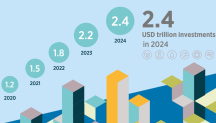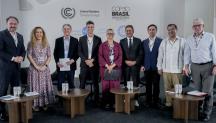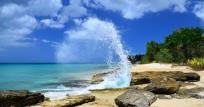
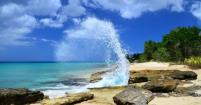
Renewables Can Supply Nearly 100% of Samoa’s Electricity Needs
Newsletter
Like many island nations, Samoa possesses enough renewable energy potential to meet nearly 100% of its electricity demand in a sustainable, affordable way. According to a new study conducted by IRENA, a combination of hydro, solar and wind power can supply up to 93% of the island’s electricity demand if a few measures are incorporated into the existing power system and if water supply remains steady.
More than 20% of Samoa’s power needs are met with renewables. The rest is met with imported diesel fuels, which have a negative effect on domestic energy security and energy prices. IRENA’s study finds that a significant increase in renewable energy capacity is possible – including 14 megawatts (MW) of solar PV and an additional 5 MW of hydro – and can reduce the island nation’s dependence on costly fossil fuels, while helping achieve the government target of 100% renewables by 2017. If an additional 8 megawatts (MW) of biogas projects are implemented, then 100% renewable energy electricity would be achieved.
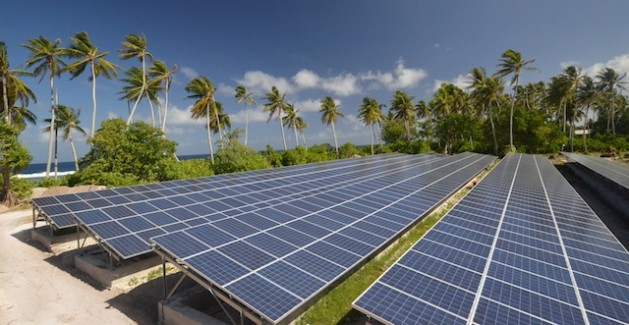
Since hydro power offers the most renewable energy potential on the island, the final share of renewables will depend heavily on the availability of water. Solar PV and wind generation would contribute as well, meeting roughly 18% of total electricity demand. Ridding the island of its dependence on imported diesel will also require extensions to the current infrastructure. As such, the report recommends a series of measures, including battery energy storage and voltage control systems to close the gap.
The integration of variable renewable energy resources often requires the use of additional technologies to ensure the safe, reliable and economical operation of electrical networks. A grid integration study is therefore crucial to assess the capacity and possible need to expand existing power grid infrastructure.
IRENA’s grid integration studies are undertaken in close cooperation with local stakeholders to assist policy makers, energy authorities and power system operators in islands. The agency has recently completed grid studies for the Cook Islands and Antigua and Barbuda, including step-by-step guidance on planning, expansion and operation measures needed to host the target shares of variable renewable energy. As a result, a better understanding and deeper knowledge of the technical challenges found will be provided to local stakeholders and the international community.
If you wish to engage in the grid integration assessment process, please contact Mr. Francisco Gafaro at FGafaro@irena.org
